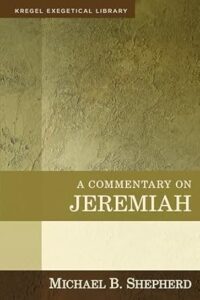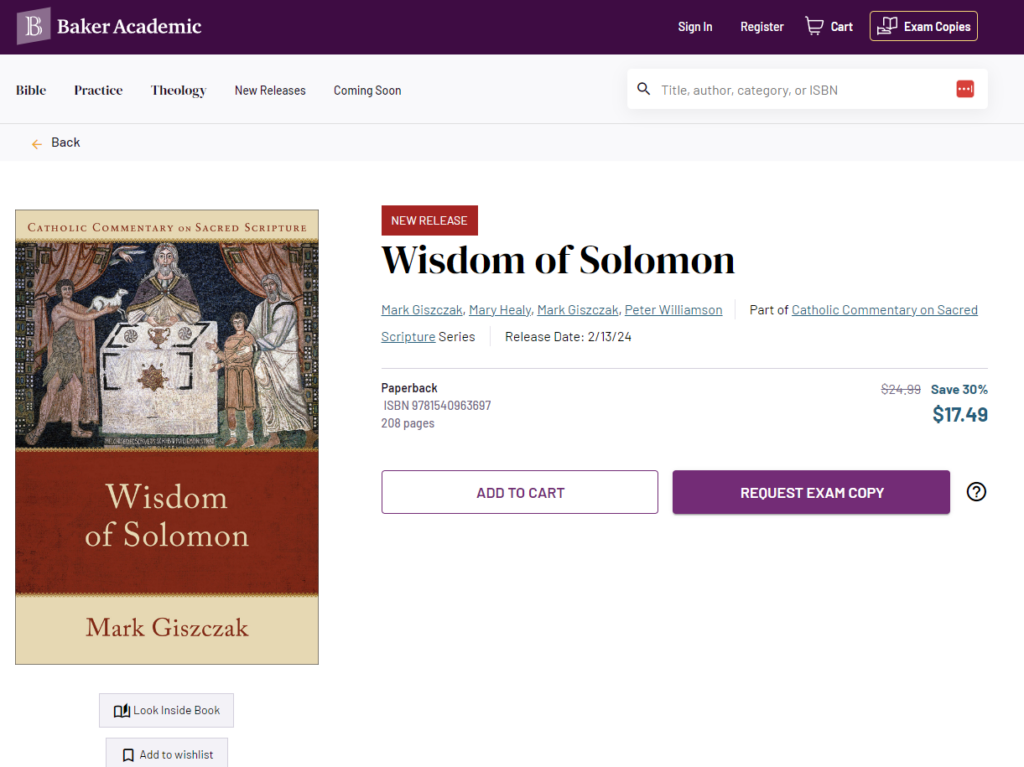For anyone who cares to look, the textual history of Tobit is more than a little confusing. For a long time we only had two Greek texts (ok, and a middle-way third Greek), but then we found significant fragments of Tobit in the Dead Sea Scrolls and now we have three languages of record: Hebrew, Aramaic and Greek. Fortunately, scholars have delved deep into all the material and come up with significant results. (I have covered it a bit before.) Oh yeah, and then there’s that dog—he’s part of the story too!
First Things First: A Chart
How many texts of Tobit are there? What are we really looking at?
| Greek I | Shorter recension |
| Greek II | Longer recension; 1700 lines longer; text in Sinaiticus |
| Greek III | Only Tobit 6:8–13:6; mediates between Greek I and Greek II |
| Aramaic 4Q196 | Tob 1:17, 1:19–2:2, 3:9–15, 6:14–17, 6:19–7:3, 13:6–12, 13:12–14:3 |
| Aramaic 4Q197 | Tob 4:21–5:1, 5:12–14, 5:19–6:12, 6:12–19, 6:19–7:10, 8:21–9:4 |
| Aramaic 4Q198 | Tob 14:2–6, 14:10 |
| Aramaic 4Q199 | Tob 7:12 |
| Hebrew 4Q200 | Tob 3:6, 3:10–11, 4:3–9, 10:7–9, 11:10–12, 12:20–13:4, 13:13–14, 13:18–14:2 |
OK, But Tell Me About the Dog
The dog appears in Tobit twice, at 6:1–2 and 11:4. Here I’m quoting the NRSV-CE of Tobit:
- So she stopped weeping. The young man went out and the angel went with him; and the dog came out with him and went along with them. So they both journeyed along, and when the first night overtook them they camped by the Tigris river. (Tob 6:1–2 NRSVCE)
- As they went on together Raphael said to him, “Have the gall ready.” And the dog went along behind them. (Tob 11:4 NRSVCE)
Now, go flip open your Bible. If you have the NABRE, you can find the dog in 6:2, but if you have the RSVCE, there’s no dog there. Why not?
Dogs Tell No Tales (About the Text of Tobit)
The dog is the key! Well, not quite, but the dog is a great indicator that our text of Tobit is inherited in multiple forms. Greek I is shorter, so most scholars thought it was better, according to the text-critical principle, lectio brevior potior, “shorter reading is better.” They were wrong. The longer Greek II is more original, as confirmed by those Dead Sea Scroll fragments. As I have explained before when considering the differences between the RSV-2CE and the ESV-CE, Tobit is crucial:
The RSV-2CE of Tobit relies on the 1957 RSV Apocrypha translation, which was based on the shorter Greek text of Tobit (Greek I represented in Vaticanus and Alexandrinus), while all modern translations of Tobit, like the ESV-CE, rely on the longer Greek text (Greek II represented by Sinaiticus). Greek II is about 1700 words longer than Greek I and it serves as the basis for the Nova Vulgata rendition of Tobit in Latin. Greek II is also confirmed as the best text of Tobit by the 1995 publication of long fragments of Tobit from the Dead Sea Scrolls in Hebrew and Aramaic by Fr. Joseph Fitzmyer, SJ.
Why does 1957 matter to us? Up until the early 1960s, scholars maintained preference for Greek I. However, scholarly opinion changed and it became clear from careful study that Greek II was more original. This opinion was confirmed by the 1995 publication by Fitzmyer of the Dead Sea fragments. All contemporary translations are based on Greek II with the help of the fragments.
But Where Is the Dog?
The dog appears only once in the shorter Greek I recension—hence, why it shows up only once in the RSV (11:4). But the dog appears two times in the Greek II, so it shows up two times in more contemporary translations (6:2 and 11:4 in NRSV, ESV-CE, NABRE). But does the dog appear in Hebrew or Aramaic? If you carefully comb through all those references in my chart, you’ll notice that 11:4 does not appear in any of the five fragments, but since the Greek texts agree on the dog there, everyone finds the dog at 11:4—the fragments are simply incomplete. But one of the fragments, 4Q197 does include 6:2—so does it have the dog? More on that in a second, but first, the often-overlooked NABRE Textual Notes also include this tidbit:
6:2: The dog . . . with them: so GII; VL: et canis secutus est eos; similarly Vg. GI and P omit.
So that means, Greek II and the Old Latin (VL=Vetus Latina) include the dog at 6:2, but the Vulgate, Greek I and Peshitta (Syriac edition) omit the dog at 6:2.
Well, Fr. Joseph Fitzmyer did the hard work of reconstructing the text of Tobit 6:2 from a fragment riddled with holes and gives us this:
[2 and] the [ange]l (was) with him, and [the dog wen]t [along, and] together [they traveled.] And there followed for them (quoted by Carey Moore, Tobit, Anchor Bible 40A [Doubleday, 1996] p. 210).
Does the dog appear in the Aramaic? So, yes and no. The Aramaic word for dog, kelev, does not appear, but from the spacing of the letters and losses in the fragment, it seems that there is just enough space for it as reconstructed. So the 4Q197 fragment included the dog originally, but the actual word on the page has been lost to the ravages of time.
It might take a lot of scholarly headaches to arrive at a solution, but the story of the dog in Tobit helps us see the value of textual criticism. If it weren’t for the dog, we might not have bothered to notice that there are two different versions of the Greek, that the longer one is better and that the original Aramaic text included two appearances for the dog. So, for dog-lovers everywhere, Tobit is the book for you!
Shout-out to one of my professors, Dr. Edward Cook, for collecting references in literature to Tobit’s Dog: https://ralphriver.blogspot.com/2005/04/tobits-dog.html


